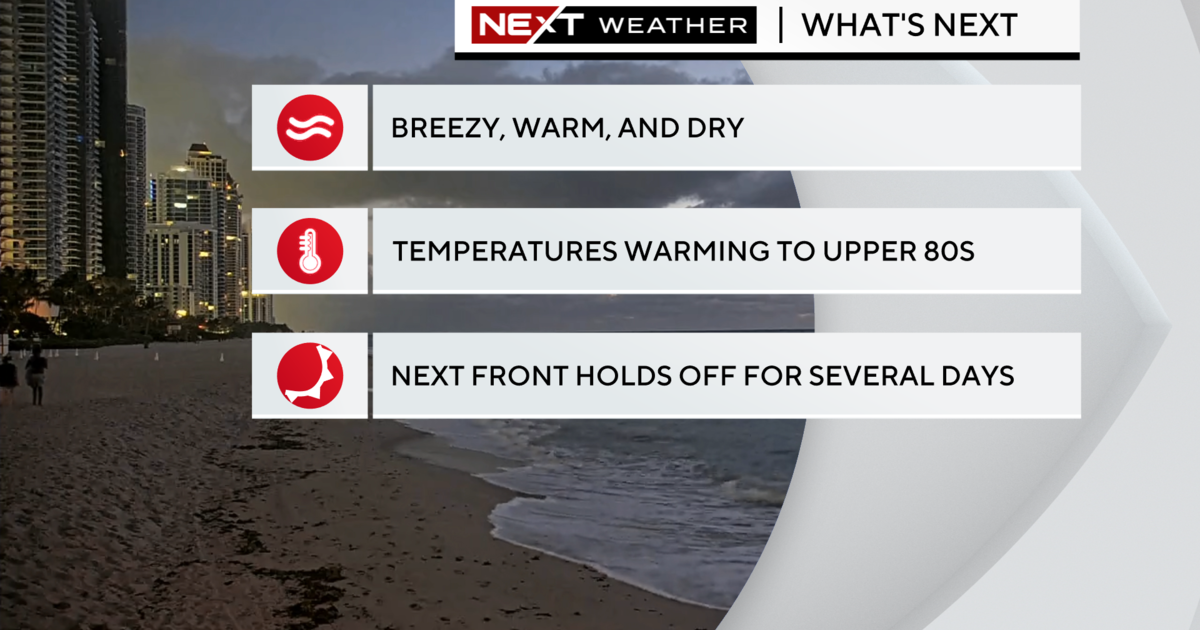Dangerous Beach Conditions For 4th Of July
MIAMI (CBS4) – Wind gusts this Independence Day have already reached 25 mph to near 30 mph in parts of South Florida.
Those strong southeasterly winds will lead to yet another day and another holiday weekend with a high risk of rip currents at all beaches along eastern Florida.
The increased risk for rip currents will continue through at least Sunday.
Beachgoers should look for beach warning flags and swim with caution.
This is the second 2013 holiday that beach conditions have become extra dangerous at local beaches.
Rescue officials told beachgoers swimming was not advised during the Memorial Day holiday weekend because of rip currents and dangerous surf.
A 15-year old boy died after he was pulled from the water in a Hollywood park on Memorial Day.
The teen's family said they were watching him in the surf off John U Lloyd state park when he went under and didn't resurface.
According to police the family noticed the water was getting rough, but as they were making their way back to shore, a wave pulled the boy under.
He was found a short distance away from where he disappeared.
Anyone considering swimming should heed the warnings of lifeguards according to rescue officials.
Rip currents are fast-moving belts of water that travel from the shore out into deeper water.
They often pull swimmers away from the shore and many times swimmers panic before being able to "break the grip of the rip" and drown because they can't stay afloat according to rescue officials.
- To survive a rip current, rescue personnel recommend trying to not panic.
- Swim only at beaches with lifeguards. If red flags are present, rip currents are considered strong and swimming is not advised.
- Yellow flags mean a moderate risk and green flags mean the surf is calm.
- Remember to never swim alone and pay close attention to children and elderly swimmers.
- To get out of a rip current, swim parallel to the shoreline and never swim against the current.
- Anyone who cannot swim out of the current should float or lightly tread water until the current reduces and they can swim out of it and back to shore.
- Rescue officials don't recommend trying to save others from a rip current because many people have drowned while trying to help. Instead, call 9-1-1.
Statistics show that every year in the U.S., rip currents cause more than 100 drownings and account for about 80% of beach water rescues.



